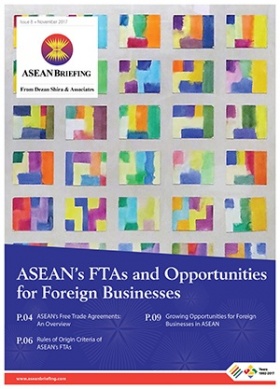RCEP Negotiations Reach Critical Stage – Likely to be Inked by Year-End
 In the sixth Regional Comprehensive Economic Partnership (RCEP) ministerial meeting held in Singapore, the negotiations for the conclusion of the proposed RCEP reached a critical stage; the top leaders from the 16-member coalition came together and pledged to endorse a package of outcomes by year-end.
In the sixth Regional Comprehensive Economic Partnership (RCEP) ministerial meeting held in Singapore, the negotiations for the conclusion of the proposed RCEP reached a critical stage; the top leaders from the 16-member coalition came together and pledged to endorse a package of outcomes by year-end.
Concluded on August 31, 2018, the two-day Singapore Ministerial meeting also saw some chapters of the agreement nearing conclusion. While two, on economic and technical cooperation and on small and medium enterprises, had already been finalized, another two chapters, on customs procedures and trade facilitation and government procurement, were finalized at the Singapore meeting.
Key concerns, however, remain on many other chapters that are still outstanding. Some of the hurdles include e-commerce, electronic commerce and data, intellectual property and market access to sectors such as agriculture.Despite the slow progress made so far, the member states are confident in narrowing the gaps and concluding the deal by November this year.
The RCEP trade officials will next meet in Auckland, New Zealand to iron out respective provisions between October 17 and 24, 2018. Two further rounds of ministerial meetings are expected to take place before the heads of states meet at the RCEP Summit scheduled for November 2018.
RCEP and its implications for ASEAN
The RCEP is a proposed mega free trade agreement in East Asia, built upon the existing agreements of ASEAN with its six dialogue partners – Australia, China, India, Japan, South Korea, and New Zealand. One of the key objectives of RCEP is to achieve a modern, comprehensive, high-quality and mutually beneficial economic partnership agreement between the participating countries that will cover trade in goods, trade in services, investment, economic and technical cooperation, intellectual property, competition, electronic commerce, and dispute settlement among other issues.
The RCEP has the potential to deliver significant opportunities for businesses in ASEAN. The 16 RCEP participating countries account for about 45 percent of the world’s population (3.4 billion) and about a third of the global gross domestic product (about US$20 trillion) and total trade (about US$10 trillion).Once implemented, it will promote investment and the trade in goods and services across the region.
Further, it will contribute to developing rules for trade and commerce in the region. Currently, ASEAN has multiple standalone ‘plus-one’ trade agreements with its FTA partners that have created complex structural barriers in the region with regards to the application of different tariff rates and domestic rules of origin provisions. The RCEP will streamline rules and procedures for each FTA and minimize the existing trade inefficiencies. Further, rules for new fields such as intellectual property and e-commerce will also be developed.
The RCEP will also support the spread of global production networks and supply chains in East Asia and may play an important role in reducing the economic gap between the developed and developing countries in the region.
About Us
ASEAN Briefing is produced by Dezan Shira & Associates. The firm assists foreign investors throughout Asia and maintains offices throughout ASEAN, including in Singapore, Hanoi, Ho Chi Minh City and Jakarta. Please contact us at asia@dezshira.com or visit our website at www.dezshira.com.













